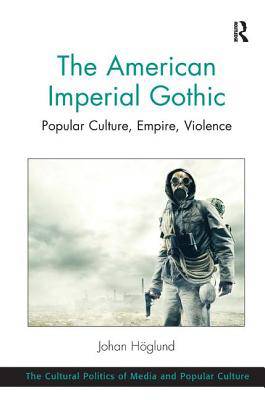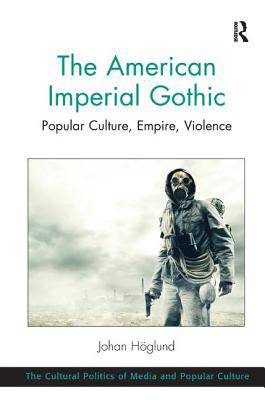
- Retrait gratuit dans votre magasin Club
- 7.000.000 titres dans notre catalogue
- Payer en toute sécurité
- Toujours un magasin près de chez vous
- Retrait gratuit dans votre magasin Club
- 7.000.0000 titres dans notre catalogue
- Payer en toute sécurité
- Toujours un magasin près de chez vous
305,45 €
+ 610 points
Format
Description
The imagination of the early twenty-first century is catastrophic, with Hollywood blockbusters, novels, computer games, popular music, art and even political speeches all depicting a world consumed by vampires, zombies, meteors, aliens from outer space, disease, crazed terrorists and mad scientists. These frequently gothic descriptions of the apocalypse not only commodify fear itself; they articulate and even help produce imperialism. Building on, and often retelling, the British 'imperial gothic' of the late nineteenth century, the American imperial gothic is obsessed with race, gender, degeneration and invasion, with the destruction of society, the collapse of modernity and the disintegration of capitalism. Drawing on a rich array of texts from a long history of the gothic, this book contends that the doom faced by the world in popular culture is related to the current global instability, renegotiation of worldwide power and the American bid for hegemony that goes back to the beginning of the Republic and which have given shape to the first decade of the millennium. From the frontier gothic of Charles Brockden Brown's Edgar Huntly to the apocalyptic torture porn of Eli Roth's Hostel, the American imperial gothic dramatises the desires and anxieties of empire. Revealing the ways in which images of destruction and social upheaval both query the violence with which the US has asserted itself locally and globally, and feed the longing for stable imperial structures, this book will be of interest to scholars and students of popular culture, cultural and media studies, literary and visual studies and sociology.
Spécifications
Parties prenantes
- Auteur(s) :
- Editeur:
Contenu
- Nombre de pages :
- 224
- Langue:
- Anglais
- Collection :
Caractéristiques
- EAN:
- 9781409449546
- Date de parution :
- 18-04-14
- Format:
- Livre relié
- Format numérique:
- Genaaid
- Dimensions :
- 156 mm x 234 mm
- Poids :
- 494 g

Les avis
Nous publions uniquement les avis qui respectent les conditions requises. Consultez nos conditions pour les avis.






